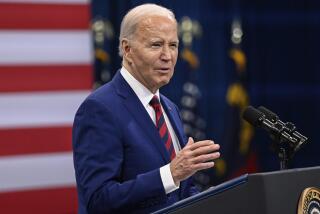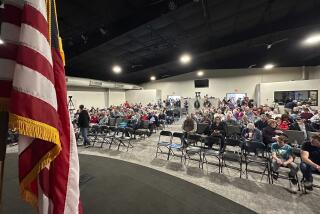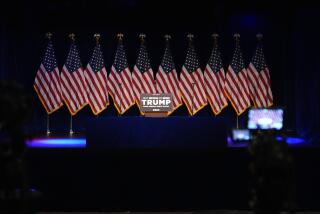Ron Paul turns to Minnesota
The last time Nevada Republicans caucused in a presidential contest, they delivered a stunning second-place finish to Texas Rep. Ron Paul, the libertarian-minded candidate who had been largely written off, averaging last place in polls leading up to caucus day.
The lesson was that Paul may not appeal to a broad base of voters, but the people who like him can be counted on to turn up and disproportionately represent themselves at caucus events, which typically draw few participants.
Four years later, Paul has turned the lesson of Nevada into a national campaign strategy, focusing his attention on caucus states where his loyal followers could keep him in the delegate hunt.
That’s why the Texas congressman skipped the Florida primary and focused his efforts instead on Maine, a state that has been holding something of a multi-day caucus that Paul could very well win.
Tonight marks the beginning of a stretch of caucus contests in Nevada, Maine, Minnesota, Colorado and Washington. They represent Paul’s best bet to gain a boost in the delegate count before Super Tuesday, March 6.
So as his supporters made their pitch for Paul at Nevada caucus sites today, Paul was off to Minnesota to rally voters who will caucus there next Tuesday.
Accompanied by his wife, Carol, and one of his 18 grandchildren, the 76-year-old congressman and doctor delivered his standard stump speech before a cheering crowd of devotees.
“It sounds like the revolution has already come to Minnesota!” Paul beamed as he took the stage in Arden Hills, Minn.
As usual, he ranted about monetary policy and railed against wars and other military operations abroad.
“We have to change our appetite for big government,” Paul said. “… No more than we can be the policemen of the world, we can’t be the financial caretaker of the world either.”
Paul objected to being labeled an isolationist because of his opposition to the wars in Iraq and Afghanistan, and his general dismissal of concerns about Iran’s nuclear ambitions.
“We have the strongest military in the history of the world,” he said. “We are not going to be attacked. Nobody is on the verge of invading us.”
“What we have to do is decide how much engagement we should have around the world,” he continued. “I think we should have plenty. It should be engagement with trade and friendship and travel and expressing of ideas.”
More to Read
Start your day right
Sign up for Essential California for news, features and recommendations from the L.A. Times and beyond in your inbox six days a week.
You may occasionally receive promotional content from the Los Angeles Times.






